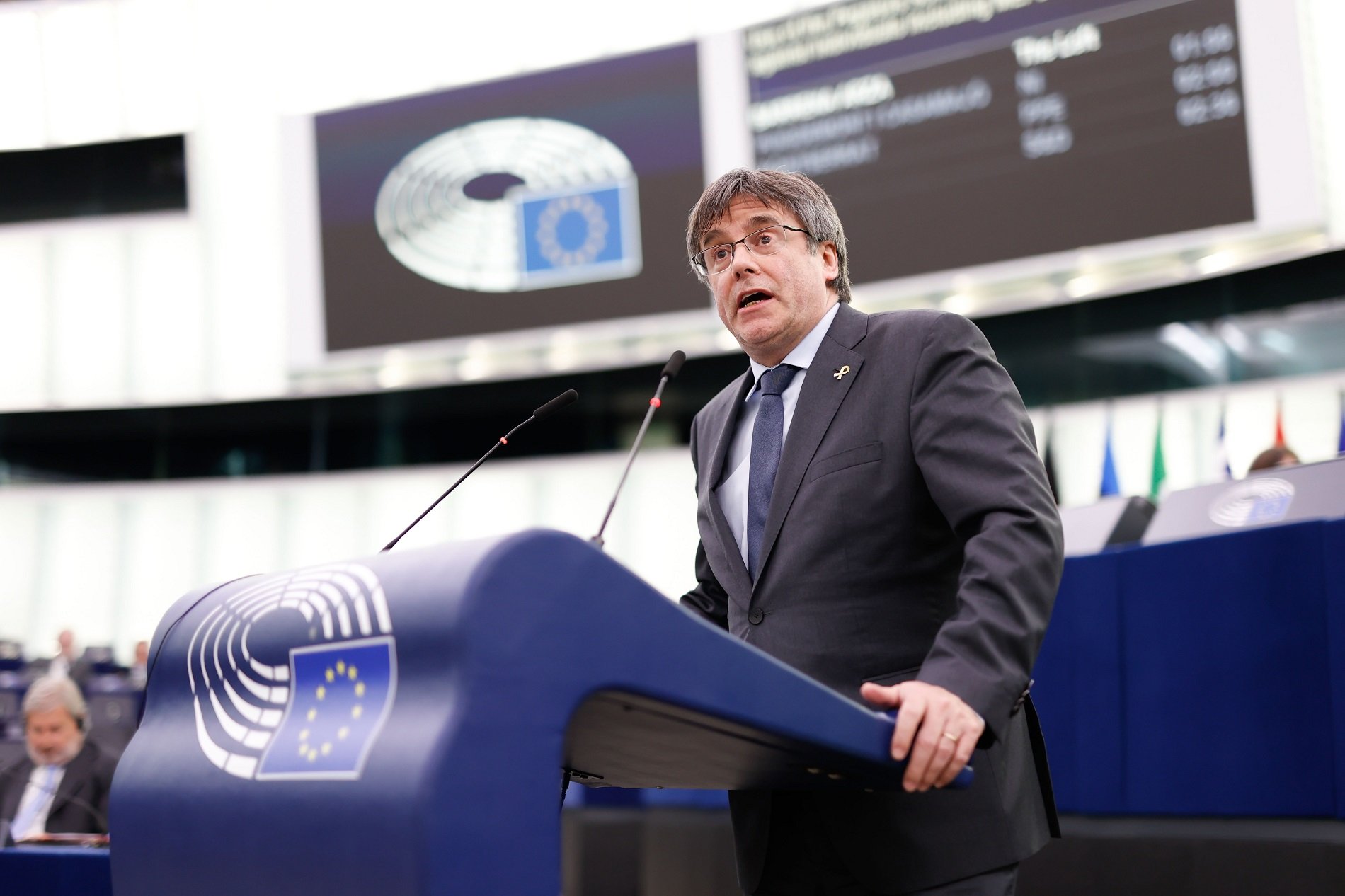This Tuesday, October 18th, marks six months since the revelation of CatalanGate, the unprecedented mass espionage using Pegasus spyware that affected more than 60 Catalan independence movement leaders, supporters and people who were close to them. Since then, parliamentary investigations have been opened by the Parliament of Catalonia as well as in the European Parliament, but in the Spanish Congress the affair is not being investigated, with the exception of the espionage suffered by three members of Pedro Sánchez's Spanish government with this same software. Now, exactly six months after this scandal broke out, in an article published by the magazine "The Parliament", Catalan MEP and former president Carles Puigdemont has expressed his outrage about the European Union's "indifference" to this case of mass espionage that has affected European Parliament employees and MEPs, including himself, while also venting his protest that there are still too many questions unanswered about this attack on their privacy through the hacking of their mobile phones.
In a hard-hitting article, Puigdemont focuses on the lack of initiative from the EU to fight the espionage or even condemn it, focusing especially on the figure of the president of the European Commission, Ursula von der Leyen: "The Commission has remained too silent. While assertive when Pegasus was affecting only Poland, Hungary or Greece, the suspicion that Spain has been spying on Catalan citizens who are pro-independence has been met with indifference." This is the first complaint that Puigdemont makes in the article, also censuring the absolute silence of president Von der Leyen when she visited Barcelona, to take part in a key business conference, days after the scandal broke: "And even worse, she didn’t mention the threat caused by Pegasus spyware in her State of the Union speech. Not a single word about the cyber-espionage campaigns waged against European citizens and their consequences," the Catalan politician censures.
I’ve lived for five years in exile, and if there’s something I have learnt, it is that the more the EU protects Spain, the more its double standards on civil rights damage its internal and external credibility. We cannot do it any longer | #Pegasus
— krls.eth / Carles Puigdemont (@KRLS) October 18, 2022
📑 https://t.co/U03lcELAjh pic.twitter.com/T8cC1VcHQY
In a reflection that he also shared in a tweet, Puigdemont analyzed the effects that this indifference on the part of the European Union and especially Von der Leyen could have on the institution: "I’ve lived for five years in exile, and if there’s something I have learnt, it is that the more the EU protects Spain, the more its double standards on civil rights damage its internal and external credibility. We cannot do it any longer. Pegasus is not only a crisis, it is an opportunity to fight for a better Europe. A lot is at stake," concludes Puigdemont in a very forceful message.
The EU's inaction, carte blanche for espionage
According to the MEP, the message that Europe is sending to regimes around the world with this inaction is "deeply disturbing", as the implication it conveys to them is that if this kind of cyberespionage prompts only indifference in the EU, how can it possibly be stopped anywhere else in the world? He says that "democratic dissidents, minorities and opponents around the world are more at risk than before due to the attitude of the European Union." And, as the MEP also notes, the fact that Pegasus also allows messages and content to be created inside the infected phone makes the use of this spyware even graver, putting whole investigations at risk as the boundaries between what is real and what is fake disappear. The Catalan MEP did acknowledge that the committee on Pegasus in the European Parliament, of which he himself is a member, is "going in the right direction", but the work he is doing is not enough, with "a fact finding trip to Spain" having been discarded.
Investigate Pegasus internationally, say pro-independence leaders
Meanwhile, in Catalonia, 11 leading figures in the independence movement have urged the Catalan Parliament to promote the creation of an independent international commission of inquiry to clarify "the extent of mass espionage against the Catalan national minority within Spain". The text is signed by Blanca Serra, Lluís Llach, Salvador Cardús, Quim Torra, Vicent Partal, Àngels Martínez-Castells, Albano-Dante Fachin, Elisenda Paluzie, Josep Costa, Marta Sibina and Antonio Baños. They maintain that the Spanish state "has taken the lead in the most serious case of systematic and planned espionage in Western Europe against democratic and peaceful citizens", a "persecution" which, they claim, has been carried out "against the independence movement to destroy its legitimate political aspirations."

